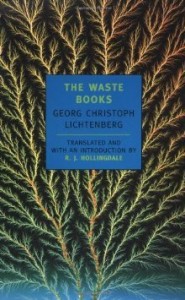Are customer reviews on amazon.com a real service and useful for readers?
The answer is: no. Customer reviews on that website are clearly a pseudo “service”.
A very few of them are interesting. But I usually do not know who is writing them. In some cases it is an author who writes under certain aliases reviews about his own – usually mediocre – book, while writing very unfavorable reviews on the books of competitors (Orlando Figes is not the only case). In other cases it is someone who is paid to write these reviews in the interest of the author or publisher. And even a very high number of favorable reviews don’t say anything about the quality of the book – unless you think “a million flies cannot be wrong”…
Nevertheless, some of the amazon.com customer reviews make for hilarious reading. Some examples:
“The most boring read ever! The main character spends all his time doing nothing — and, worse, makes us all listen to his tedious CONTEMPLATIONS on how he does nothing. Much too slow; there should be more action here. Moreover, the author reverts time and time again to tired cliches — e.g., “outrageous fortune,” “murder most foul,” “primrose path,” “the time is out of joint,” “more honored in the breach than the observance.” The list could go on and on: we’ve heard them millions of times before, and we hear them every day. Finally, the story is too grim and sad. Why do so many people have to die? Why can’t the main character just realize that it’s better to forgive and forget than to take revenge and CONSTANTLY PONTIFICATE about EVERYTHING. Stay away from this book. There are lots of better and more entertaining books to buy.” (A. Person, Cambridge, MA – on Hamlet)
Ok, if you need more action, I recommend Counterstrike…no contemplation required.
“I don’t see anything philosophical, moral or intelligent about this book. It’s a boring, nonsensical story that has no point and on top of that is an excellent example of extreme ennui. If anyone other than the intellectual, snob critics’ pet “Kafka” had written it it would have been flushed down the toilet where it deserves to be.” (Euterpe – on The Metamorphosis)
If I had the choice to either flush this review or The Metamorphosis down the toilet, it is an easy guess which one would I choose.
“Paulo Coelho in my opinion is the best writer I have read in my life. He astonishes me with his natural talent and his insight.” (NN jr. – on The Zahir)
I feel sorry for each person that thinks that this insufferable windbag P.C. is a writer at all. “The best writer I have read in my life” – Mr. NN jr. has either a wicked sense of irony, or he is a serious contender for the award for the dumbest sentence in a book review ever.
“Not a great novel by ANY means. VEEEEERY SLOOOOOOW, INCREDIBLY BORING and NEVER really gets going at all (I bet most people will fall asleep after the first chapter or two). Defies logic how this novel gets so highly rated by ANYONE. Quite a bizarre/weird writing style and I really struggled with this one. Don’t waste your time reading this garbage.” (graygray – on Crime and Punishment)
Defies logic how this masterpiece can be rated by anyone as “incredibly boring”.
“This book is absolutely BORING!! I can’t believe almost everyone (or is it just everyone?) rated this book as 5 full stars! First, I don’t get it, second, Werther is somewhat pahychotic (Sic!), and third, this book has no plot. Therfore (Sic!), no climax, which is the most important part of a book.” (A Customer – on The Sorrows of Young Werther)
Ah yes, Goethe, the old bugger. He hadn’t got a clue how to write. No plot, no climax – and I bet also his orthography was not on par with yours…
These reviews made me think of two sentences of Georg Christoph Lichtenberg:
„Wenn ein Buch und ein Kopf zusammenstoßen und es klingt hohl, ist das allemal im Buch?“ (When a book and a head are colliding and it sounds hollow, is it always in the book?)
„Ein Buch ist ein Spiegel: wenn ein Affe hineinsieht, so kann kein Apostel heraus gucken.“ (A book is a mirror: if an ape looks into it an apostle is hardly likely to look out)
So, better you read some good book blogs or other print or electronic media with a more serious approach to reviewing instead of amazon.com’s customer reviews – and better buy your books at your local bookstore. (And if you buy online, there are many good alternatives to Mr. Bezos’ figment of monopoly capitalism.)
The Lichtenberg quotes are from his Waste Books (NYRB Classics, transl. R.J. Hollingdale).

The quotes from customer reviews are from the Amazon.com website.
© Thomas Hübner and mytwostotinki.com, 2014. Unauthorized use and/or duplication of this material without expressed and written permission from this blog’s author and/or owner is strictly prohibited. Excerpts and links may be used, provided that full and clear credit is given to Thomas Hübner and mytwostotinki.com with appropriate and specific direction to the original content.




 Facebook
Facebook RSS
RSS Twitter
Twitter